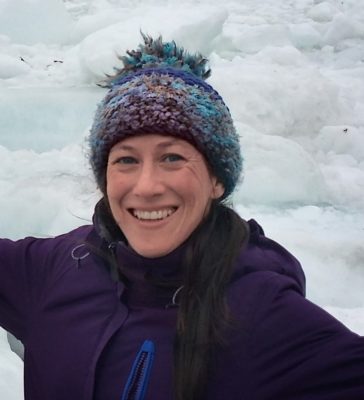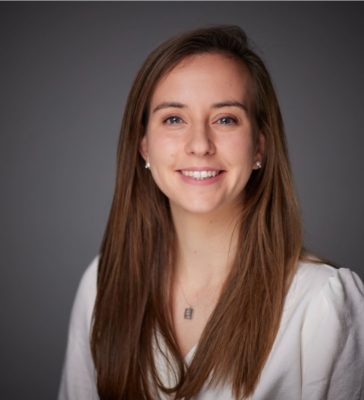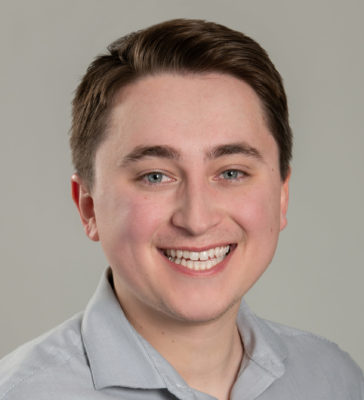
Samantha Andrews
Current Employer/Organisation Name
Memorial University / Ocean Oculus
What have you been doing since leaving Exeter, and what are you doing now?
After my BSc and Exeter, I went on to study an MSc at the University of York, with some time spent at CSIRO in Australia. Once that was finished, I decided to spend some time working to raise some funds for a PhD. I worked at a GIS company in Jersey where I was able to build some skills. I am now doing a PhD focusing on spatial management for migratory marine species at Memorial University in Canada. I also have a small “side-hustle” (Ocean Oculus) which focuses on research, science engagement and writing.
Why did you choose this career? And what do you enjoy most about your work?
Many things for sure. I grew up on a tiny island, surrounded by the ocean and its bounty of marine life. The ocean was part of my life from childhood to adulthood whether building sandcastles on the beach, having BBQs, swimming in the ocean or scuba diving with seals nearby, or kayaking along the coastline, dwarfed by cliffs with nesting birds it was there. But there was also changes developments over time that altered our coastline, increases in nutrient pollution into our bays, overfishing, the decline of one of the southern-most Atlantic puffin populations. Then there was the amazing documentaries by the BBC natural history unit, which showed me the wonders of the natural world and the changes we are doing to it. I guess I fell in love with the natural world the ocean and its degradation hurts. It is something worth fighting for. Is science the best way to do that? Not necessarily but for now it is the path I am on. In both my PhD and my “side hustle”, I love learning more about science and our ocean and (in the case of the side hustle) about people and their various relationships with the sea. In the side hustle I also get to share the things I’ve learned with the world! In the PhD I get to focus on my love of migratory species. Crucially, both offer a way to help us all become better stewards of our planet.
What did you enjoy most about studying here?
I enjoyed the supportive atmosphere. Professors were reachable, the support staff always willing to learn a hand, and of course there was my cohort of fellow students!
Why did you choose to study at Exeter?
When I decided to go back to university (I was 28 years old when I started my BSc at Exeter) I wanted to find a program that allowed me some flexibility to choose my career path. After some considerable time investigating the options, the Conservation Biology and Ecology program fitted the bill. It would give me a wide knowledge base, there were field options, the class sizes weren’t huge, and it was based in what looked to be a very nice part of England (I went to the Tremough campus in Cornwall).
What skills and experiences have been most useful for your career?
The program taught not only had us preparing reports in a scientific style early on, but encouraged us to be critical to science, policy, etc. relating to our natural world and conservation efforts. I didn’t really think of these things as skills until I went on the study abroad component of my BSc, but when mixing with students in the final year of their BSc in Canada (where I did my study abroad) I quickly realised how new these skills were to them – and they were surprised at how easy these things came to me).
What advice would you give to a current student who wishes to pursue your career?
If you want to go into anything even vaguely quantitative learn math. I was not interested in math, I did not love math, but in hindsight, this is something I should have focused on more because my lack of skills in this area does hamper my progress in my PhD (and there isn’t necessarily the time to catch up)
What are your plans for the future?
My immediate plans are to finish my PhD and publish some good papers! After that I am not 100% sure of my path. I would very much like to continue working on the spatial management of migratory/highly mobile marine species. I am also interested in developing my “side hustle” as a full-time endeavour. In our changing economic climate and options at times limited, I am keeping an open mind as to where I go. Whatever it is, I’ll be focusing on developing the tools and knowledge for us all become better stewards of our planet.

